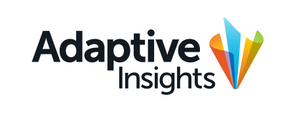PALO ALTO, CA — (Marketwired) — 10/21/15 — , the worldwide leader in for the biggest brands and the hottest companies, today unveiled its CFO Indicator Q3 2015 report benchmarking chief financial officers– (CFOs–) perspectives on their evolving roles as they lead business transformation across their organizations in an increasingly data-driven world. The global survey of 435 CFOs focused on data analytics trends, business collaboration strategies, top financial mistakes most companies make, and 2016 plans and predictions.
This quarter–s CFO Indicator reveals that today–s CFOs desire data integrity and a single source of truth to drive accurate insights and actionable business transformation. While CFOs predict the amount of data they manage will greatly increase by 2020, they face significant data challenges with respect to the accuracy and timeliness of data. The majority of CFOs reported that keeping data siloed (69%) and having inaccurate data for forecasting and planning (40%) were among the top financial mistakes most companies make.
To combat the data divide across departments, CFOs are prioritizing more holistic and collaborative planning and analysis, partnering with key C-suite executives to deliver aggregate views of critical business information and working most closely with the COO (66%), head of HR (34%), and CIO (30%).
“Faced with a challenging macroeconomic environment and the need to provide a more holistic view of the business, CFOs are increasingly becoming the –knowledge executive– in the organization,” said Tom Bogan, CEO, Adaptive Insights. “As both the volume and sources of data increase, CFOs are working across departments, driving toward a single source of truth that gives them a more consistent, comprehensive view of the organization in real time. This view will ultimately provide more accurate business insights and inform more effective business strategy.”
Although they desire a single source of truth, CFOs recognize the challenges ahead. On the path to a single source of truth, CFOs are incorporating exploding amounts of data aggregated from myriad sources and departments and implementing new tools like predictive analytics.
One-third of CFOs predict the amount of data they manage will increase over 50% within the next five years; 3% expect an increase of over 1,000%. Forty-one percent of finance teams already manage data from three to five source systems, and 22% pull from as many as five to 10 systems.
A majority (58%) indicated sales data was the top non-financial data they needed to access, while nearly one-third ranked sales execution as the largest contributing factor to missing topline forecasts.
Surprisingly, 47% manually aggregate their data from disparate systems to try to create a single source of truth. Considering the anticipated growth in data, this is a paradigm that likely cannot be sustained.
CFOs cited “accuracy and integrity of the data itself” as the most or second most important characteristic needed for actionable reports and insights (65%), followed by “timeliness or shelf life of data” (42%).
The majority (62%) have not yet achieved a single source of truth, though it is a key goal, with 45% actively working toward it to eliminate source system overload and manual labor. According to 37%, legacy technology is the biggest obstacle, followed by cost, overload of data sources, and lack of collaboration (27% each).
Most CFOs think predictive analytics are valuable for forecasting (58%), but 42% aren–t yet sold. Predictive analytics can be an incredible asset to forecasting and planning; however, it is virtually impossible to use predictive analytics until companies have a holistic and singular view of their organization through a single source of truth.
As CFOs take an increasing role as business strategists, they are looking beyond internal operations into macroeconomic trends and external threats.
Economic uncertainty (71%) and competition (81%) are top external concerns for CFOs posing financial risks to their companies, widely outpacing concerns over the U.S. elections outcome (28%).
In their 2016 planning, CFOs are considering a potential rise in interest rates (48%), M&A activity (38%), cybersecurity (32%), and political volatility (29%) as the top factors to impact their business. Most believe the U.S. elections will have only moderate (46%), very little (36%), or no (7%) impact on the global economy.
To view the CFO Indicator Q3 2015 summary report, click .
To view the CFO Indicator Q3 2015 infographic, click .
The Adaptive Insights CFO Indicator reports what is top of mind for CFOs, as well as unveils key attributes that define the modern CFO. The CFO Indicator Q3 2015 report surveyed 435 CFOs across the globe online over a period of 10 days ending Oct. 1, 2015. The margin of error is +/- 4.71 percentage points.
Adaptive Insights is the leader in . Via its software as a service (SaaS) platform, the company offers capabilities for that empower finance, sales, and other business leaders with insight to drive true competitive advantage. The Adaptive Suite is sold direct or is available through Adaptive Insights– robust cloud CPM channel ecosystem of 200+ partners, including Accenture, Armanino, BDO, Cohn Reznick, Intacct, KPMG, McGladrey, Plex Systems, and Workday. NetSuite also offers Adaptive Planning as its NetSuite Financial Planning Module.
More than 2,800 companies in 85 countries use Adaptive Insights. These range from mid-sized companies and nonprofits to large corporations, including AAA, Boston Scientific, CORT, Konica Minolta, NetSuite, Philips, and Siemens. Adaptive Insights is headquartered in Palo Alto, Calif. For more information, visit , the , and follow Adaptive Insights on and .
Contacts:
Diane Orr
Adaptive Insights
650-422-7334
Jennifer Harlan
Highwire PR
415-963-4174 ext. 63


You must be logged in to post a comment Login